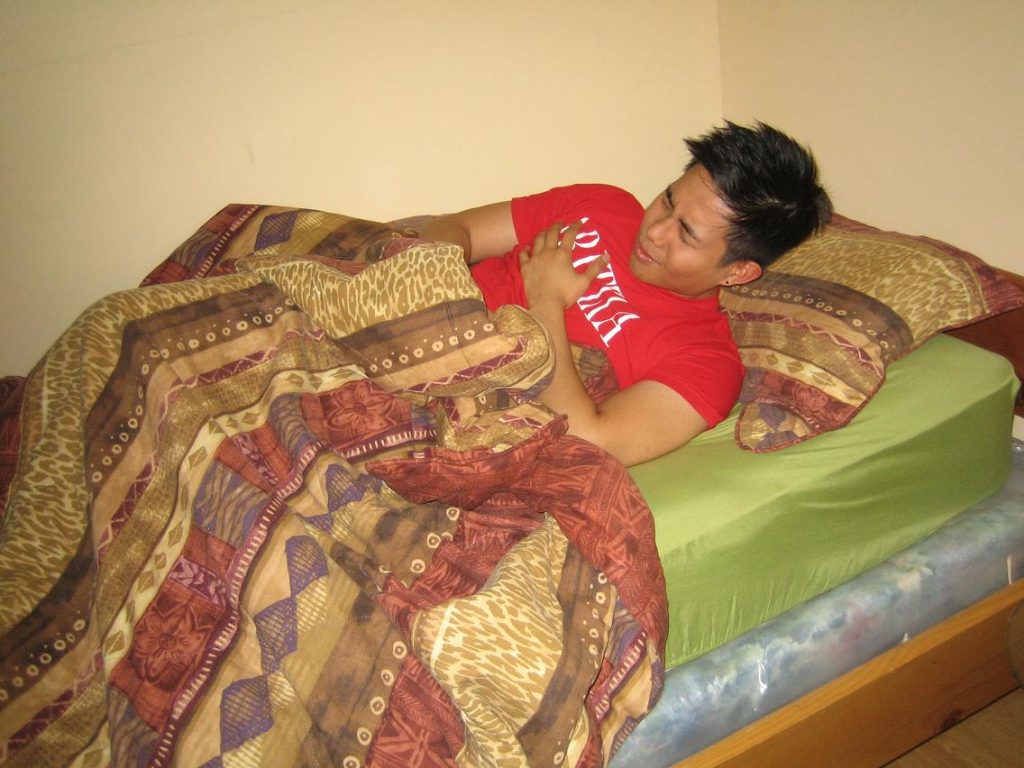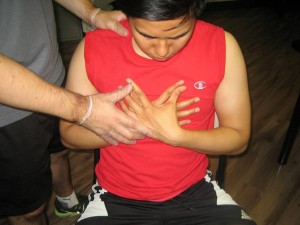Nocturnal asthma is an asthma characterized by severe symptoms at night. Sometimes the symptoms can also be experienced usually between the time of 1:00 and 4:00 am.
Asthma is a long-term disease of the lung that causes inflammation and narrowing of the airways. It is characterized by wheezing or whistling sound when breathing, shortness of breath, coughing and tightness of the chest. Coughing usually happens at night or early in the morning. This condition affects a person during childhood.
Symptoms of nocturnal asthma
- Severe coughing especially at night and early in the morning
- Difficulty sleeping
- Tightness of the chest as if the chest is squeezed or something heavy is above the chest.
- Whistling sound while breathing or wheezing
- Shortness of breath
Severe coughing especially at night and early in the morning.
Causes
- Exposure to irritants such as air pollution, cigarette smoke, dust and chemicals in the work area.
- Allergens found in animal hair, mold, dust, cockroaches and pollen from trees, grasses and flowers.
- Non-steroidal anti-inflammatory medication and nonselective beta-blockers
- Viral upper respiratory infections such as common cold
- Sleep which cause changes in bronchial function and cause narrowing of the airways such as sleeping in a reclining position.
- Hormone secretions
Treatment
- Take a long-acting bronchodilator placed in an inhaler for asthma to lessen the bronchospasm and the symptoms.
- Take the prescribed medication for acid reflux and heartburn to lessen production of acid in the stomach and for fast healing of the condition.
- Long-term medications such corticosteroids, leukotriene modifiers and long-acting beta-2 agonist to lessen symptoms of the condition.
- Avoid exposure to dust mites to prevent asthma attacks at night. Keep bedrooms clean as much as possible. Wear disposable dust mask while cleaning the room to prevent further exposure to the allergens.
- Change beddings regularly to prevent accumulation of dust and dust mites. Use dustproof covering for mattress and the pillows to prevent contamination of the allergens.
- Sleep in an air-conditioned room to lessen exposure to dust and pollen. It also reduces the humidity inside the room. If the room is damp or humid, install a dehumidifier to eliminate excess moisture out of the air.
- Dry and disinfect areas in the home including the kitchen and bathroom to prevent accumulation of mold.
Tips
- Breathe through the nose while sleeping at night to prevent attack of asthma.
- Perform regular exercises; eat high anti-inflammatory foods every day. Be active every day and eat a well balanced diet.
- Avoid drinking alcohol, tobacco and other drugs
- Do no sleep on your back to prevent fast rate of breathing and start an asthmatic attack.
- Avoid eating especially before going to bed at night.
- Do not go to bed in a stressed state. Perform some relaxation techniques and breathing exercises such as meditation and yoga to unwind the body
FACT CHECK
https://asthma.net/types/nighttime/
https://www.healthline.com/health/nocturnal-asthma
https://www.webmd.com/asthma/guide/nocturnal-asthma-nighttime-asthma#1

